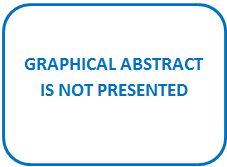Analysis of the role of planning in the enterprise
DOI:
https://doi.org/10.15587/2706-5448.2023.284148Keywords:
enterprise planning, enterprise development, enterprise management, business planningAbstract
The object of research is the enterprise. The subject of research is a complex of theoretical, methodological and practical issues related to the improvement of planning as a tool of effective enterprise management. The work is directed to the generalization of theoretical provisions and the development of organizational and methodological aspects of planning, as well as the development of practical recommendations regarding the mechanism of implementation of planning at enterprises.
Among the sources for analysis when considering issues of the economic essence and content of planning were the methodological and legal foundations of legislative acts and government resolutions in the field of planning. The following research methods were used: abstract-logical, economic-statistical, system-functional analysis, analytical, balance, program-target, economic-mathematical, calculation-constructive, experimental and others. The main one was the systematic analysis of theory and practice, with the ultimate goal of developing methodological recommendations for the creation and development of the planning system at the enterprise.
The task of improving planning at the enterprise was solved in the work. Insufficient use of all types of planning affects the results of enterprises, lack of maximum efficiency. Requirements for productivity and product quality require the use of new technologies and approaches, especially in the processes of resource management and enterprise planning. Preparation of a detailed plan can help objectively assess business opportunities, trends and development of the enterprise.
The practical significance of the conducted analysis lies in the development and implementation of recommendations for improving the forms and mechanism of planning at the enterprise. The implementation of proposals regarding the methodology of implementation and functioning of planning will allow the enterprise to increase the efficiency of management based on the clear implementation of strategic goals in the system of planned indicators.
References
- Alieksieiev, I. V., Bondarchuk, M. K. (2017). Hroshi ta kredyt. Lviv: Vydavnytstvo Lvivskoi politekhniky, 216.
- Bilyk, M. D., Bielialov, T. Ye. (2015). Finansove planuvannia na pidpryiemstvi. Kyiv: PanTot, 435.
- Kostetska, N. I. (2018). Current issues of enterprise activity planning. Stalyi rozvytok ekonomiky, 1 (38), 74–80.
- Kudlak, V. Ya. (2016). Finansove planuvannia ta prohnozuvannia. Ternopil: TNTU, 94.
- Aaker, D. (2009). Strategic management. Saint-Petersburg, 344.
- Aksoff, I. (2009). Strategic Management. Moscow, 160.
- Drucker, P. (2010). Management. Moscow: OOO «I. D. Viliams», 704.
- Alieksieiev, I. V., Bondarchuk, M. K. (2017). Finansova sanatsiia i antykryzove upravlinnia pidpryiemstvom. Lviv: Vydavnytstvo Lvivskoi politekhniky, 268.
- Paientko, T. V. (2018). Uprovadzhennia kontrolinhu v upravlinni finansamy na makrorivni v Ukraini. Finansy Ukrainy, 6, 107–126.
- Perevozova, I. V., Kafka, S. M., Zapukhliak, I. B. (2016). Ekspertyza biznes-planu yak kliuchovyi element uspikhu pidpryiemnytskoi idei. Aktualni problemy rozvytku ekonomiky rehionu, 8 (2), 173–175.
- Chychun, V. A., Palamarchuk, V. D. (2010). Biznes-planuvannia yak faktor uspishnoi pidpryiemnytskoi diialnosti. Sotsium. Nauka. Kultura, 21 (18), 58–63.
- Finansovyi analityk-servis. Obmin unikalnymy znanniamy ta pobudova efektyvnykh komunikatsii. Available at: https://cfo.ua/
- Derzhavne ahentstvo Ukrainy z pytan kino. Available at: https://usfa.gov.ua/

Downloads
Published
How to Cite
Issue
Section
License
Copyright (c) 2023 Olena Baylova

This work is licensed under a Creative Commons Attribution 4.0 International License.
The consolidation and conditions for the transfer of copyright (identification of authorship) is carried out in the License Agreement. In particular, the authors reserve the right to the authorship of their manuscript and transfer the first publication of this work to the journal under the terms of the Creative Commons CC BY license. At the same time, they have the right to conclude on their own additional agreements concerning the non-exclusive distribution of the work in the form in which it was published by this journal, but provided that the link to the first publication of the article in this journal is preserved.







